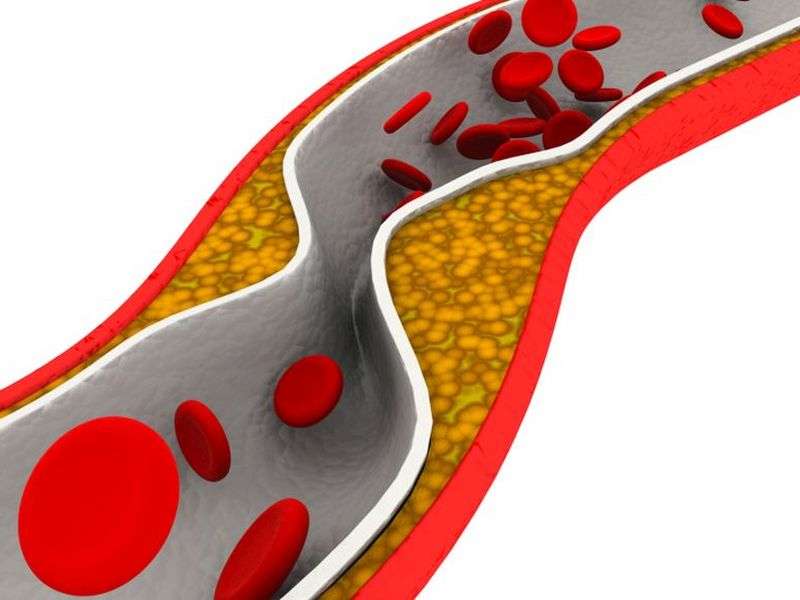Cardiometabolic syndrome ups subclinical atherosclerosis risk

(HealthDay)—Cardiometabolic syndrome (CMS) is associated with increased risk of subclinical atherosclerosis, but the risk is attenuated by high fitness, according to a study published in the Nov. 1 issue of The American Journal of Cardiology.
Sae Young Jae, Ph.D., from the University of Seoul in South Korea, and colleagues examined whether CMS correlates with subclinical atherosclerosis in a study population of 2,107 men participating in a health screening program that included coronary artery calcification (CAC) and carotid artery intima-media thickness (CIMT) measures. Subclinical atherosclerosis was defined as CAC score >0 and a mean CIMT >75th percentile.
The researchers found that participants with CMS had higher odds ratios of having a positive CAC and CIMT (odds ratios, 1.41 and 1.70, respectively) compared to those without CMS, after adjustment for confounding variables. Compared with lower fitness, upper levels of fitness correlated with lower prevalence of CAC and CIMT (odds ratios, 0.69 and 0.53, respectively). Compared to fit participants without CMS, unfit participants with CMS were 1.47 and 2.35 times more likely to exhibit CAC and CIMT, respectively. Odds ratios for the prevalence of CAC and CIMT were similar for fit participants with and without CMS.
"Our findings demonstrate that CMS is associated with an increased risk of subclinical atherosclerosis but that high fitness appears to attenuate these associations in men," the authors write.
More information: Full Text (subscription or payment may be required)
Copyright © 2016 HealthDay. All rights reserved.




















